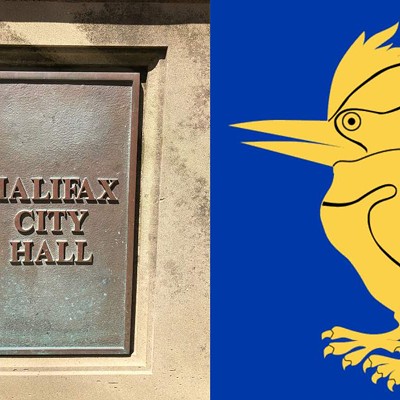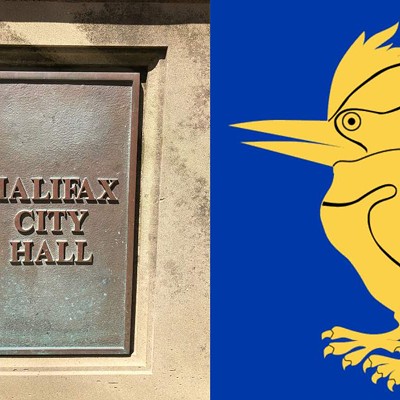Council can legitimately meet in secret for issues involving real estate, litigation and personnel, and this makes sense: it would be a disservice to the taxpayer if the city’s negotiating position on a real estate deal or potential litigant was made public before making an offer on property or going to court, and employees have a right to privacy when their job performance is being discussed.
Still, just because council can meet in secret for these reasons doesn’t mean council must meet in secret for these reasons, but the default position is that all these discussions are secret. We’d be better off if some of these discussions were held in public: the annual debate with the federal government over in lieu payments for Citadel Park should be public, for example, as should the review of the CAO, which involves policy and political discussion.
And council tends to stretch the legitimate reasons to include stuff that shouldn’t be discussed in secret. The prime example of this is council’s appointments to boards and committees, which council does in secret using the “personnel” excuse. A citizen may have a range of reasons for asking to serve on a committee, from an old fashion commitment to public service to looking to influence city policy such that a particular business or set of businesses benefits. (The latter happens rather blatantly when the Chamber of Commerce, for example, tries to get reps on a city committee.) The public has a legitimate right to know the motivations of a particular applicant, and to see how council deals with those motivations. More, council doesn’t just use the “personnel” excuse for citizen appointments, but also when appointing councillors themselves to committees. Councillor are not employees; they are public servants who should be open to public scrutiny.
Council also legitimately holds secret meetings, but then in my view improperly holds back documentation related to the meetings. I place claim settlements in this category. People make an unknown (to us) number of claims for all sorts of things---getting injured when a bus slams on its brakes or tripping over broken sidewalk, tree branches falling on cars, getting beat up by cops and so forth. We should know what sort of settlements are being made, and for how much, so that we can have proper oversight of our government and identify problems that are now secret.
Today, however, I will highlight a different kind of secret meeting: the “educational meetings,” which are known in City Hall as “Lunch and Learns.
As their name implies, Lunch and Learns are informal meetings held over lunch in Halifax Hall, a large meeting room in City Hall. Typically, a guest speaker or speakers are invited to give a presentation, and councillors can interact, ask questions and so forth. The meetings are not agendized, and the public and press are not allowed to attend.
Responding to a request from councillor Jennifer Watts that the legality of keeping the public from Lunch and Learns be reviewed, city attorney Mary Ellen Donnovan wrote a remarkable opinion about them. It’s remarkable because it gets the law exactly right, but then comes to the exact wrong conclusion. Let me quote it at length:
There is no question that regular meetings of council must be held in public as required by s. 16 of the Charter subject to the in camera exceptions set out in s.19 of the Charter. Questions tend to arise when a “lunch and learn” or a workshop is scheduled as to whether those sessions also constitute a meeting for the purpose of s.16 of the Charter and whether the public is entitled to attend.Using Donovan’s opinion, council continues to hold Lunch and Learns in secret. But Donovan is wrong: Lunch and Learns are a “material part of the decision- making process.”The issue of what constitutes a council meeting has been considered in a number of cases by the courts. The cases have been consistent in holding that it is not necessary for the purposes of considering such a question whether the usual trappings of a council meeting are present. Rather, what is critical is whether the councillors are requested to attend a function at which matters which ordinarily form the basis of Council’s business are dealt with in such a way as to move them materially along the way in the overall spectrum of a Council’s decision. In other words, is the public being deprived of the opportunity to observe a material part of the decision- making process.
For example, in a 1998 case involving the City of Yellowknife, weekly briefing sessions chaired by the mayor were held which were intended to provide administrative briefings and to give members of council an opportunity to provide directions to the city’s administration. The decision was that since the briefing sessions were intended to move the issues materially along in the overall spectrum of council’s ultimate decision, that these were meetings within the terms of the applicable legislation and therefore had to be held in public.
Another example is a case involving the city of Ottawa. In that case, Ottawa decided to hold an in camera retreat at a resort facility to which all members of council and senior staff had been invited. The agenda included many items that would ordinarily be within the council’s jurisdiction. Again, the Ontario Court of Justice held that since matters which would ordinarily form the basis of council’s decision were dealt with in such a manner as to have matters move procedurally towards council’s final decision that this was a meeting which the legislationrequired be held in public and therefore it was outside the council’s jurisdiction to hold such a meeting.
A final example is a 1988 decision involving Hamilton-Wentworth. In that case, a standing committee of council held an “in-camera workshop” with staff (in a lounge) to review past, present and future economic development objectives and as well to discuss the committee’s terms of reference. In that case, the court held that when all members of a committee are summoned to what would have been a regularly scheduled meeting, and hold an in-camera workshop, that that is a meeting of the committee within the meaning of the governing bylaw. However, the court helpfully noted that members of a committee, meeting informally, can discuss questions within the jurisdiction of the committee privately.
In the Hamilton-Wentworth case, one of the judges of the 3 judge panel dissented disagreeing that what some had described as a brainstorming session actually constituted a meeting within the meaning of the applicable legislation. This highlights the fact that even the courts, at times, struggle with what does or does not constitute a meeting. The courts have noted that in appropriate circumstances, private meetings can facilitate the functions of government. Public bodies require some breathing room to reflect upon their objectives and to study and share concerns privately, as a group, provided that open discussion precedes decision or recommendation.
In one American case, the courts have suggested that when commissioners [read councillors] gather and confer with one another to effectively collaborate in doing their homework that they be able to do so freely and without restraint. It was noted in that case: Like all who have the responsibility of making important decisions, they need an opportunity to express, exchange and test ideas, to deliberate freely, off the record, and without the restraint of outside influence. Freedom of discussion and the exchange of ideas are essential to an understanding of a problem.
Bottom line: Where all members of council are invited to attend, and the meeting is not just an educational session, such as is the case with many HRM “lunch and learns”, but instead is a discussion leading to a reasonably imminent decision, such as on the budget, that meeting is a meeting which the public is entitled to attend.
[emphasis added]
Let me give an example. As I wrote in an investigative piece on the convention centre, Nova Scotia Business, Inc.’s Stephen Lund was excited about a new convention centre not so much because of the convention centre itself, but because the complex would include a “financial centre”:
Lund acknowledges that Ramia's Nova Centre proposal is attractive because it includes a financial tower with Class A office space. "I'm a proponent of the convention centre," he says. "I'm excited for more development downtown. I support that project, but I'd also like to see some of the other projects go up, too. I don't care who does it; I just want to see it done."I don’t mean to re-hash the convention centre debate, but there’s no doubt that this particular Lunch and Learn was part of a political process of getting elected officials “on page” around some of the reasons to support the convention centre, and that this was a “material part of the decision- making process” that led to approval of the convention centre. By excluding the public, there could be no critical analysis of the arguments being made by Gavin and Lund, and their statements and arguments could not be disseminated to the public for open and frank discussion and analysis. Their statements were simply absorbed by councillors as fact---indeed, as an “educational” experience---and no one was in a position to challenge them, because the public couldn’t know what was being said. (I only learned of the meeting three years after it was held.)The pursuit of the financial industry went into high drive on July 31, 2007, when Lund and Halifax mayor Peter Kelly hosted a luncheon in City Hall's Halifax Hall, with guest speaker Robert Gavin, a Citco manager. The entire Halifax city council was invited, and present were most of the Greater Halifax Partnership and NSBI.
"The room was really crowded," recalls Halifax councillor Linda Mosher.
Halifax could be the "'next Dublin,' referencing the Irish capital's emergence as an international financial servers centre and one of the strongest economies in Europe," wrote Lund in the invitation to the luncheon. "Mr. Gavin's experience in leading centres around the world has helped shape [Nova Scotia's] strategy to grow the sector here and to maximize opportunities for businesses in many different industry sectors."
We all lose when public access to knowledge and opinion is limited and treated as proprietary information.
Secret school board meetings
I should also note that the Halifax Regional School Board now has its own version of Lunch and Learn, called “Leadership Sessions”:
...The committee then considered the present practice of holding Leadership Sessions, in which governing board members and senior staff consider matters in an informal fashion with no decisions expected or taken. It was agreed that this format is extremely useful and should be expanded.So, an elected official, a school board member, will bring an issue forward for discussion, but that issue will be discussed in secret, without the public, and just to make sure board members come to “reasoned and informed decisions”---decisions!---senior staff members will hover above the board members lest they have impure or independent thoughts.Recommendations:
1. The by‐law should be suspended to allow for a trial period of six months in which the PPP and Finance Committees would not function. At the end of this trial period the matter shall be reviewed and a decision made to amend the by‐laws to make the change permanent or to revert to the existing structure.
2. Board meetings will continue to be held on the fourth Wednesday of each month, but may be scheduled more frequently if circumstances require.
3. Leadership Sessions will be held on the Wednesdays when no Board meeting is scheduled, and could be held on other evenings if necessary and appropriate.
The Chair and Corporate Secretary will set the agenda for Leadership Sessions.
The chair of a Leadership Session may rotate among governing board members who have indicated an interest in chairing such meetings. Again, the Chair and Corporate Secretary will be responsible for arranging the details of this. Normally a board member who has brought an issue forward for discussion should not chair that Leadership Session.
6. Leadership Sessions will not be considered public meetings, but brief notes of what was discussed will be recorded and posted on the board web site.
In order to encourage less formality in board meetings, and in recognition of the role played by senior staff in assisting governing board members come to reasoned and informed decisions, the seating format should be altered so that directors and other senior staff with issues before the board are seated in closer proximity to governing board members, allowing for easier interaction.
These Leadership Sessions without question violate the Education Act:
MeetingsI’ve asked school board officials how they can justify the Leadership Sessions, but have not yet gotten a reply.59 (1) All meetings of a school board shall be open to the public.
(2) A school board shall not determine by secret ballot any matter before it other than the election of a chair and vice-chair.
(3) Notwithstanding subsection (1), a meeting, or part of a meeting, of a school board may be held in private for the purpose of considering issues involving individual students, personnel matters or other confidential information as determined by a majority of the members of the school board present.
(4) Where a school board meets in private pursuant to subsection (3), the school board may not make any decision in private other than to revert to an open meeting.
The person presiding at any meeting of the school board may cause to be expelled and excluded any person who is disrupting the proceedings of the school board. 1995-96, c. 1, s. 59 .














